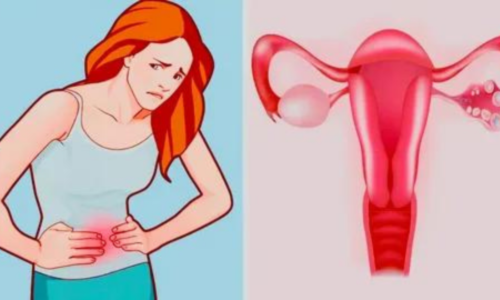
The rectum is the last part of the large intestine (also known as the colon) and ends at the anus. The anus is a few inches long, so you’re ready to go to the bathroom. Although it is part of and continuous with the large intestine, the rectum has its own characteristics.
Colorectal cancer is cancer that occurs anywhere in the large intestine, including the rectum. However, you can only get cancer in the rectum, which is called rectal cancer.
Treating rectal cancer is more complicated than treating colon cancer, because the space narrows, as do other nearby organs. Therefore, prevention and early detection are more important.
Our expert team of colon and rectal surgeons in Great Hartford recommend evaluating early signs of rectal cancer and treating it as soon as possible. They detect, diagnose, treat and treat rectal cancers at offices in Bloomfield, South Windows, and Plainville, CT.
First, we must define anal cancer as the growth of a cancer or tumor in the anus that affects the anus only. The incidence of this cancer has increased significantly over the past years, and through this article we will show you early warning treatment so that we can avoid this cancer.
We’ve compiled a list of early signs of rectal cancer so you can be aware of changes that require evaluation. Regular colonoscopy is also recommended to facilitate early detection.
The density or shape of the stool has changed
Normal stool should have a fine, sausage-like consistency. When rectal cancer or other rectal disorders develop, it can cause abnormal discharge, such as:
Diarrhea
holding
Good chair
Sometimes diarrhea and constipation can be caused by food allergies, but chronic diarrhea and constipation should not be ignored. Wishlists can be a symptom of a rectal polyp or inflammatory bowel disease, such as Crohn’s disease.
Blood and beach may be seen in the stool
Blood in the stool can be a sign of rectal cancer, colon cancer, or other serious colon conditions. Contact your rectum immediately.
Mucus in the stool indicates irritation of the rectal tissues. Inflammation may be due to infection, inflammation, cancer, or other conditions.
Your pelvis hurts me
Colon cancer often has no symptoms. However, pain in the pelvic area could be a sign of rectal cancer.
Women who still experience pelvic pain due to the pain associated with premenstrual syndrome (PMS). However, if pain persists after menstruation, it may be a sign of rectal cancer.
Symptoms of anal cancer:
Permanent feeling of itching in the anus
Permanent pain in the anus, especially when sitting
Discharge from the anus
Blood coming out of the anus
The presence of a tumor in the anus
We find that these symptoms are similar to the symptoms of anal fissure and hemorrhoids, and this cancer affects more than 60 years of age. If these symptoms are present, they must be presented to the doctor immediately and the necessary x-rays performed.
How can anal cancer be prevented?
Some people want to know whether it is possible to prevent anal cancer. In fact, there is no guaranteed way to prevent anal cancer, but the risk of infection can be reduced by the following:
Quit smoking, and avoid passive smoking as much as possible.
Practice safe sex, by limiting sexual partners, avoiding anal sex, using condoms during sex, and getting regular checks for sexually transmitted diseases.
Taking the papilloma virus vaccine. The vaccine is given in three doses to individuals between the ages of 8 and 26 years.
Anal cancer treatment?
Anal cancer treatment varies from one individual to another, as there are many factors on which the treatment of anal cancer depends, such as the individual’s age and general health, the degree of cancer, the size of the tumor, or the extent of the cancer’s spread.
Chemotherapy
Chemotherapy uses drugs that kill cancer cells or prevent them from dividing.
Radiation therapy
Radiation therapy uses high-energy rays that destroy cancer cells, and radiation therapy may cause side effects such as ulcers around the anus.
Immunotherapy
Immunotherapy uses medications that help strengthen the immune system and stimulate it to attack cancer cells.
Surgery
Surgery for anal cancer depends on the size of the tumor and the extent of its spread. The tumor and part of the tissue surrounding it can be removed without harming the sphincter muscle, and the individual is still able to move his bowels.
In advanced cases, the anal canal, rectum, and part of the colon may be removed, and thus the individual will not be able to defecate, so doctors construct a colostomy, which is a surgical procedure in which part of the colon is connected to the abdominal wall, and the An opening called a stoma, through which stool exits into the colostomy bag.

Leave a Reply